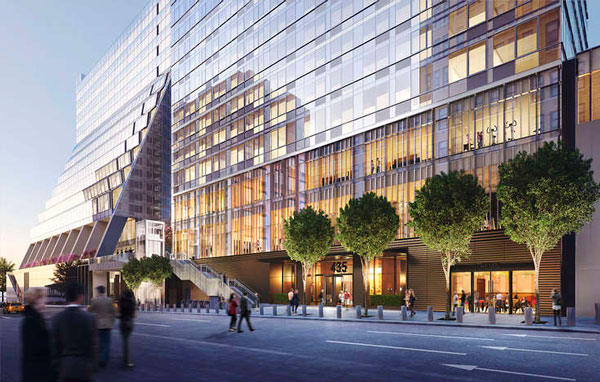Trending
The collapse of rental concessions
As vacancy rates rise, deal sweeteners are falling out of fashion with renters — only price cuts matter

In early September, Citi Habitats broker Jason Burke put his listing for a three-bedroom condo at 218 West 22nd Street on the rental market for $6,500 a month. While the owner planned to cover the full commission, weeks passed and the Chelsea unit remained empty.
After 30 days on the market, Burke advised his client that there was only one real option: It was time for a price reduction. He and the owner agreed to drop the rent to $6,100 and offer a $12,000 credit to whoever signed the lease. Even so, they struggled to find a renter. The apartment was soon taken off the market and remained vacant when this issue went to print.
Rental landlords across the city have been relying on concessions all year in an effort to keep their units filled without drastically cutting face rents. But those incentives — from paid broker fees to months of free rent — are quickly losing appeal. “If there is an apartment that’s sitting, concessions won’t do it,” Burke said. “You have to reduce the price.”
Though deal sweeteners remain rife, vacancy rates in the rental market are on the rise as prices continue to soften. Manhattan’s vacancy rate reached a 2017 high of 2.6 percent in September, according to the appraisal firm Miller Samuel. Meanwhile, the median rents after concessions in Manhattan, Brooklyn and Queens continued to slide, with Brooklyn’s rent falling by more than 5 percent.
“We’ve reached the point where we are going to see more aggressive declines in face rents, just to get it in sync with the large amount of supply,” said Jonathan Miller.
By the end of 2017, a total of 21,793 new market-rate apartments in Manhattan, Brooklyn and Long Island City, Queens, will been added to the market, and another 21,434 will open next year, according to data from Citi Habitats. At the same time, the rate of rental concessions in Manhattan climbed to a record 31 percent in January, and concessions in Brooklyn reached a seven-year high of 22 percent in July, per Miller Samuel. Although the use of such deal sweeteners in both boroughs has come down from those peaks, the rates are still well above what they were a year ago. In northwest Queens, more than 40 percent of leases had concessions in September.
“I think a lot of places are still holding out in hope that they’ll get the higher rent,” said Triplemint broker Amy McDonald.
At the Eugene, Brookfield Property Group’s 844-unit rental tower at 435 West 31st Street, for example, the landlord is offering no-fee apartments, as well as two free months on a 14-month leases. Brookfield rented out 400 units in the past seven months, according to a representative for the firm, but it still has nearly 40 percent of the building left to fill.
In some cases, landlords are getting creative by offering gift cards and free use of amenities, sources said. But the cracks in those special arrangements are beginning to show. Brown Harris Stevens agent Bastian Weinhold said he recently represented a tenant who had managed to negotiate several hundred dollars off the face rent of an apartment in Midtown West in addition to a month of free rent and free amenity use. “Renters shop around,” he noted. “They have the freedom to get concessions [on top of] a reduced rent.”
Citi Habitats president Gary Malin said many landlords may need to cut rents soon to get their apartments filled before winter — a notorious dead time for rental owners. “The pricing that’s in the marketplace is not having the desired effect in getting people to pull the trigger,” he said.
Concessions have helped landlords protect their base rents for much of the year, but sources said they are now starting to have the reverse effect in some cases. Renters are becoming more reluctant to lease apartments with several months free rent, the sources said, because many worry about having to renew at a rent they can’t handle when the lease is up.
Some major NYC landlords have avoided relying on rental concessions for that very reason. “We want people who can afford it to live in the building — not just because of a concession,” said Brian Upbin, the head of asset management at Two Trees. “We are not just looking to fill the building. We’d much rather take someone who will be a long-term renter.”




